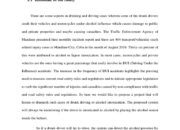In the vast tapestry of the universe, the synthesis of information theory and physics has burgeoned as a distinctly compelling discipline. The intertwining of bits—discrete units of information—and the fundamental principles governing physical reality illuminates manifold aspects of our cosmic existence. This discourse seeks to elucidate the intricate relationship between information theory and the universe, unravel the complexities of data representation, and explore the implications of this emergent paradigm.
At its foundational level, information theory, pioneered by Claude Shannon in the mid-20th century, articulates the quantification, storage, and communication of information. Shannon’s revelations ushered in a newfound comprehension of the ways in which data could be transmitted and encoded amidst noise. Central to this theory is the concept of a bit, the most elemental piece of information, which assumes different states commonly represented as ‘0’ and ‘1.’ Yet, this simplistic binary perspective belies the nuanced ramifications of information when conceptualized within a broader physical framework.
Information theory discerns different levels of information presence, encompassing entropy, redundancy, and channels of communication. Entropy, fundamentally a measure of uncertainty or disorder, serves as a cornerstone of the subject, encapsulating the unpredictability of information content. In thermodynamic systems, entropy finds a direct analog; an increase in entropy signifies greater disorder within a physical system. This duality prompts consideration: could the universe itself be perceived as a colossal information-processing entity, where physical laws intricately govern the flow and transformation of bits?
The connection between information theory and physics extends into the realm of quantum mechanics, a domain where the peculiarities of particles challenge classical conceptions of reality. Quantum information theory posits that quantum bits—or qubits—exhibit properties that fundamentally diverge from classical bits. The phenomenon of superposition, wherein a qubit exists simultaneously in multiple states, and entanglement, a correlation between qubits regardless of spatial separation, disrupt entrenched notions of communication and data processing. This realization has catalyzed the development of quantum computing, an ambitious endeavor that harnesses the principles of superposition and entanglement to revolutionize computational capacities.
Moreover, contemporary research into black holes provides fertile ground for the intersection of information theory and cosmology. Within the framework of general relativity, black holes are often construed as regions of spacetime exhibiting gravitational pull so profound that not even light can escape. Yet, when juxtaposed with quantum mechanics, the pronounced paradox of information retention arises. Can information that falls into a black hole be irretrievable? The Holographic Principle asserts that the entirety of the information contained within a volume of space can be encoded on its boundary, suggesting that information is conserved even in the most extreme environments. This profound assertion encapsulates the belief that the universe may, in fact, be a holographic projection, further blurring the lines between information and physical reality.
Metaphysical interpretations inevitably arise in light of these discoveries. If the universe can be framed as an information system, it invites philosophical inquiries into the nature of reality itself. Are the very constituents of existence merely manifestations of informational patterns? This query leads to an exploration of digital physics, a perspective that posits that the universe is akin to a vast computational system governed by laws akin to algorithms. It challenges our understanding of ontology, suggesting that the cosmos might be better conceived through the lens of data structures and processes rather than traditional matter-centric paradigms.
As scientific inquiry progresses, diverse applications of information theory extend into various domains. In the realms of biology and neuroscience, the quest to decode the genetic information inscribed within DNA epitomizes the interrelation of information and life itself. The genetic code, a remarkable arrangement of base pairs within the DNA molecule, conveys the instructions necessary for constructing organisms. Thus, the intersection of information theory and biological sciences unveils the mechanisms through which information orchestrates the splendor of life, emphasizing the centrality of data representation within biological systems.
In the field of cosmology, the mapping and modeling of the universe through data harness nebulous phenomena, such as cosmic microwave background radiation and gravitational waves. These forms of data offer profound insights into the genesis and evolution of the cosmos, allowing astrophysicists to construct theoretical frameworks that elucidate the universe’s earliest moments and subsequent expansion. The practice of converting observational data into information is quintessentially rooted in information theory, reinforcing its pertinence across multiple scientific disciplines.
Returning to the profound implications of this interdisciplinary convergence, it becomes evident that a fondness for bits transcends merely the realm of computer science. It redefines our understanding of the universe by positing that every physical interaction might be indicative of an underlying informational mechanism. The notion of a universe suffused with bits, governed by the dual laws of information and physics, heralds a transformative era of scientific exploration. In recognizing the symbiosis between these seemingly disparate fields, scholars can take measured strides towards probing the depths of existence, unraveling the enigma of reality, and contemplating the profound questions that lie at the interface of the cosmos and information.
In conclusion, the exploration of the relationship between information theory and the universe underscores a vibrant and expansive field of enquiry that continues to challenge conventional paradigms. As the boundaries of knowledge expand, embracing the intricacies of information and its fundamental role in the cosmos, scholars are invigorated to delve deeper into the implications of this emerging discourse. The universe, ripe with potential discoveries, beckons the curious mind to uncover the secrets that lie buried within the interplay of bits, inviting a profound re-examination of the nature of existence itself.











